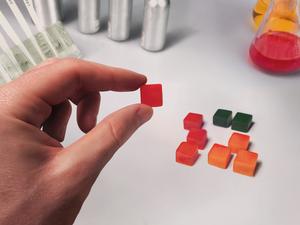
Smart building sensor tech startup Microshare raised $15 million from Marc Lasry’s Avenue Capital Group.
The Philadelphia-headquartered startup develops sensors that track factors like building occupancy, environmental monitoring, contact tracing and indoor asset zoning. Microshare’s platform provides data that commercial building operators can use to track energy consumption, how often the building is cleaned and more.
Avenue Capital Group was founded by Lasry, the billionaire co-owner of the Milwaukee Bucks, and his sister Sonia Gardner in 1995. The $15 million comes from the Avenue Sustainable Solutions Fund, a $200 million fund raised in 2020.
Microshare concentrates its business in commercial real estate, including hospitals, office buildings, airports, universities and warehouses. The company has sensors installed at Empower Field at Mile High, home of the NFL's Denver Broncos, as well as in several Aramark facilities and the McCormick Place Convention Center in Chicago.
Microshare Co-founder and CEO Ron Rock is projecting 200% year-over-year revenue growth for 2021, and between 150% and 200% revenue growth in 2022. He declined to share revenue figures. Much of the startup’s revenue is pre-booked for 2022 because of its subscription model, he said.
Microshare’s sensor platform has been in high demand as a result of what he called the “perfect storm” of Covid-19, the Great Resignation and corporate ESG initiatives over the past two years.
The pandemic accelerated the adoption of occupancy tracking and contact tracing technologies. The Great Resignation — a trend where a large number of workers have left their jobs during the pandemic — is also forcing building managers to be more efficient when it comes to scheduling cleaning, particularly as cleaning staff quit, Rock said. Companies are also increasingly more aware of their environmental footprint.
“I look at the prospects for Microshare over the next three years, and we are finally — after almost nine years — we're at the right place at the right time,” Rock said. “We’re that nine-year overnight success story.”
The 9-year-old company has raised a total of $37 million since its founding, Rock said. The startup’s investors also include Motley Fool’s venture capital arm and Semtech. Rock declined to share Microshare’s valuation.
The company will use its new cash infusion to double its team. The startup has offices in the United Kingdom, Boston and India, in addition to its headquarters at 1635 Market St. in Philadelphia, where it will hire employees in sales, engineering, delivery and accounting. Microshare now has 44 employees, and the company plans to hire six people in the near future and 40 more in 2022.
The funding will also be used to improve Microshare’s sensors and platform and make maintenance and installation as easy as changing a lightbulb, Rock said.
Within Microshare’s system is each sensor’s digital twin — a digital representation of the specific pieces of data that the sensor is tracking. A facility could have tens of thousands of sensors, which makes installation time-consuming. Microshare currently has barcodes on its sensors that building operators can scan to connect each sensor to their system using Microshare’s mobile app, and it takes about 10 minutes to set up one room with sensors, Rock said.
Microshare is working on building technology that automatically connects sensors to the platform and tracks their location, similar to how Apple’s Airpods connect with iPhones or Macs.
“That's the goal. To make it as simple to use as Apple products are today,” Rock said.







